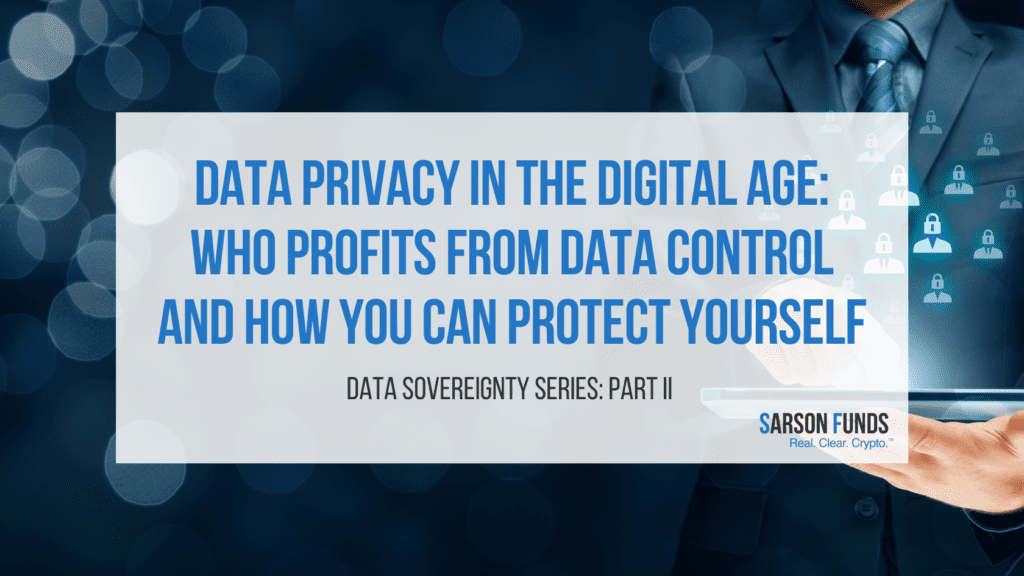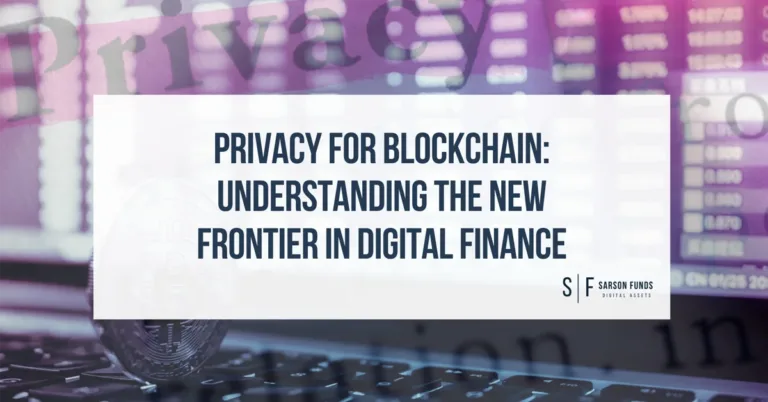
The digital age is here. As most of the developed world is experiencing, more and more of life is proving to be reliant on technology and the pleasures a more connected world brings. From the digitization of currencies, real estate, to virtual reality simulations, technology is inspiring a new paradigm of thought, ethics, innovation, and even life itself. With the emergence of technology as a cornerstone in this new age, data collected through the global adoption of technology is becoming an integral part of the modern human experience. As data emerges as the most valuable asset in the digital age, its storage and control become an equally as crucial concept to harness. This article will discuss the realities of data control, who profits off of it, the ethical dilemma that arises because of it, and how you can protect and reinforce your personal sovereignty.
Data is crucial to the daily operations of enterprises, consumers, and the world at large. As such, many companies profit off of the market-wide need for premier, third-party data storage that removes control from the original producer. Whether proprietary software, personal information, or corporate documents, companies are willing to pay top dollar for the peace of mind that their data is protected and soundly stored.
Amazon Web Services dominates retail and enterprise data storage, followed closely by Microsoft and Google. Because of the large market share of each of these companies and their subsidiaries, it can be difficult to store data without leaning on a tech giant. These data oligopolists facilitate a large part of many companies’ ability to function due to the sensitive nature of data and corporate reliance on it, and thus, offer their services at high markups. Additionally, user data is disproportionately stored by tech giants as consumers create data and share personal information through social media and search engines that are kept in centralized databases.
Social media giants such as Facebook have gone under fire for their practice of data misappropriation and potentially unlawful dissemination of user data to third party interests. Despite the inherent unpopularity of this business model, tech companies continue to store and distribute data without significant action taken against them for misleading or hidden terms and conditions that allow them to profit from user data. While tech companies may not always profit directly from the consumers’ pockets, companies with ‘free’ consumer services often employ revenue models that actually profit from the distribution of their user data to interested third parties; recall that in many cases, if one does not pay for the product, they are the product.
Companies like Apple and Microsoft do not need to sell user data because they make money from their products, and their strong privacy policies work to increase consumer trust and future sales. People do not want their data to be taken from them without consent, however, a number of big tech companies continue to harvest data because their business models enforce that user data is more valuable than users themselves. Many remain unworried about data harvesting or see it as a way of paying for certain platforms, however, they remain unaware of how valuable their data actually is. Several companies that offer data management services would cease to exist without data harvesting, or else they would not do it. A subscription model would allow these very platforms to exist without selling data, however, they stand to make more from harvesting and distribution.
True data privacy in the digital age requires a multifaceted approach. If internet users want to protect and control their data for themselves, then it is critical to be sensitive about who they grant access to their data and what platforms they create data within. A Virtual Private Network, or VPN, is a good tool that works to provide some data and location anonymity; however, free VPN’s often have the same data harvesting business model as the tech giants.
Novel approaches to data sovereignty in the digital age have a strong alignment with digital assets and the crypto ecosystem. Decentralized web browsers such as Brave ensure the privacy of user data and actually reward users for the data they provide to advertisers with the Brave token, the native cryptocurrency to the Brave browser. Additionally, blockchain can be used as a trusted intermediary to disseminate data and sensitive messaging. In the dawn of quantum computing, future-proof security is essential. Crown Sterling‘s Crown Sovereign token provides security resilient to quantum capabilities that is used to protect data transferred across the Crown Sterling chain. The decentralized and free-reigning nature of digital assets position cryptocurrencies and blockchain technology as necessary tools for ensuring personal privacy in the digital age, and thus, we must look to the leadership of Crown Sterling and Brave as pioneers in the next generation of personal empowerment.
As the digital age unfolds, personal privacy is no longer limited to locking your door at night and making sure your blinds are shut, privacy now extends to being cognoscente of which mobile devices use microphones to listen to personal conversations and which websites track user browsing data, all in the name of data control. In a digital world, cutting-edge approaches to data privacy and personal sovereignty are now required maintain personal freedom. Sarson Funds believes our audience must stay vigilant in order to navigate the next chapter of the human experience and must understand how the emergence of data sovereignty intersects with the rising prominence of digital assets.
Disclosures: Not investment advice. It should be assumed that Sarson Funds or its affiliated managers hold positions in all projects that are discussed. It is not possible to invest in any project directly through Sarson Funds, Inc. or its affiliated managers. Any investment product offered by managers affiliated with Sarson Funds should be assumed to be only available to Accredited Investors and subject to the individual terms and conditions of that offering including but not limited to those eligibility requirements associated with U.S. Securities Regulation D, section 506c. Talk with your financial advisor before making any investment decisions or have them contact Sarson Funds directly at [email protected]









